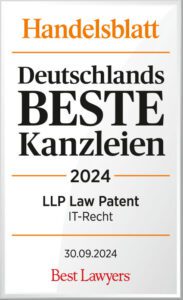New regulations on Russia sanctions – “No-Russia-Clause”

Recently, the EU passed its 14th sanctions package against the Russian state. In this context, the sanctions regulations against Russia and Belarus have been amended. Above all, they have been extended. The changes are wide-ranging and primarily affect contractual relationships regarding the export of goods to third countries. For example, 116 new persons and items have been listed and measures relating to SPFS (financial communications) and LNG (liquefied natural gas) have been adopted. The new compliance rules are particularly important for companies in the IT and technology sectors. Many companies already use the so-called “no-Russia clause” either as a mandatory requirement or as a precaution. The following article explains the changes the EU has made in this regard and why it can also make sense to use the “no-Russia clause” in view of the new sanctions package, even though there is no legally standardized obligation to do so.
The following links provide access to the current version of the sanctions regulation against Russia and the sanctions regulation against Belarus.
What is the “No-Russia-Clause”?
Article 12g of EU Regulation 833/2014 (hereinafter referred to as the Russia Regulation) requires companies to include a so-called “No-Russia-Clause” in their contracts for the sale, delivery, transfer or export of certain goods and technologies to third countries. This clause is intended to ensure that contractual partners in third countries do not export these goods to Russia. The EU offers an online template of a “no-Russia clause” for contracts. Since these are international contracts, the English version will usually be used. However, various German translations are in circulation, mainly through the Chamber of Industry and Commerce.
The aim of the “no-Russia clause”: to oblige the economy to check its supply chains. This is to prevent Russian institutions from circumventing the EU’s sanctions package by involving third countries. Accordingly, the “no-Russia clause” is not a pure gentlemen’s agreement. Instead, the clauses must provide for corresponding sanctions against the trading partner. This means that in the event of a violation, contractual penalties and/or extraordinary rights of termination of the trade relationship will take effect. Furthermore, Art. 12g stipulates that any violations that have come to light must be reported to the Federal Office for Economic Affairs and Export Control (BAFA).
In addition to firearms and ammunition, according to the list in Annex I of EU Regulation 258/201, the goods and technologies of Annexes XI, XX, XXXV, XL of the Russia Regulation are also affected. Companies should therefore carefully check whether they sell goods to third countries that are covered by these lists. The EU regularly expands these lists. Therefore, companies should also regularly check these lists. List XL (circuits, semiconductor devices and electrical apparatus), which is particularly relevant for technology-oriented companies, was last extended in June of this year!
Third countries are all non-EU countries. Exceptions to the “no-Russia clause” obligation apply to certain states with which trade is facilitated accordingly. According to Annex VIII of the Russia Regulation, which was updated in June, these include the USA, Japan, the UK, South Korea, Australia, Canada, New Zealand, Norway, Switzerland, Liechtenstein and Iceland. The latter have been added to the list. No clause is required in contractual relationships with these countries. We will be happy to advise you on further sector-specific exceptions and existing contracts on a case-by-case basis.
Caution: Problems with the “No-Russia Clause” due to conflicting civil law?
In practice, there is some dispute as to whether the EU model clauses are compatible with German law on general terms and conditions. In particular, the sanctioning contractual penalties are being challenged, which under German law on general terms and conditions are only possible up to a certain amount (especially the 5% clause). The same applies to the no-fault contractual penalty. Attention is In this case, it would first be necessary to determine which terms and conditions apply to a legal transaction. Theoretically, it is therefore possible that the “No-Russia-Clause” has no effect at all if it is invalid under German terms and conditions law. This would be a violation of Art. 12g of the Russia Regulation. The regulation itself does not specify a specific clause. It merely calls for “reasonable measures”.

Caution: Problems with the “No-Russia Clause” due to conflicting civil law?
In practice, there is some dispute as to whether the EU’s model clauses are compatible with German law on general terms and conditions. In particular, the sanctioning contractual penalties are being challenged, which are only possible up to a certain amount under German law on general terms and conditions (especially the 5% clause). The same applies to the no-fault contractual penalty. Attention is also drawn to the problem of contradictory general terms and conditions of the contractual partners. In this case, it would first be necessary to determine which general terms and conditions apply to a legal transaction. In theory, it is therefore possible that the “No-Russia-Clause” has no effect at all if it is invalid under German general terms and conditions law. This would be a violation of Art. 12g of the Russia Regulation. The regulation itself does not specify a specific clause. It merely calls for “reasonable measures”.
There is no case law on the subject yet. Some less than convincing approaches have been proposed as a solution. One option would be to include the “No-Russia-Clause” not in the general terms and conditions, but directly in the negotiated contract text. Another suggestion is to use the “clause according to Hamburg custom”. In this case, which has been developed through case law, no fixed contractual penalty is agreed. Instead, the clause works with an “appropriate” contractual penalty, the amount of which ultimately depends on the specific individual case. However, most companies use model contracts. Similarly, a company is unlikely to be able to explain the “Hamburg custom” to a contractual partner on another continent.
Ultimately, we will have to await the court rulings on this general issue. Until then, however, it seems safest to follow the template clause as closely as possible and to adapt it to the specific company if necessary. This way, companies will avoid public law sanctions.
What changes will be mandatory for companies from December 26, 2024?
What is new in the Russia Regulation is Article 12ga, which includes intangible goods. Accordingly, a “no-Russia clause” is also required when it comes to the sale of licensing or the transfer of intellectual property rights or trade secrets by other means. The same applies to the granting of access and further use rights to material or information in connection with the goods listed in Annex XL. In addition, there are also reporting obligations here in the event of known violations. Likewise, there is an obligation to sanction compliance with the agreement with appropriate measures.
Another change concerns the documentation and risk assessment obligations in connection with the goods listed in Annex XL of the Russia Regulation. The new Article 12gb extends these obligations with regard to the sale, delivery, transfer or export of the relevant goods. In the future, the risks of exporting goods and technologies listed in Annex XL to Russia and exporting them for use in Russia must be identified, assessed, documented and kept up to date. This means that it is not sufficient to create such documentation just once. Rather, it must be regularly updated. It is not clear what steps are required and when they are proportionate to the type and size of the risk.
We would be happy to assist you with a corresponding risk assessment. Art. 12gb also stipulates that strategies, controls and procedures that are suitable for mitigating or managing risks of export to Russia must also be implemented.

In what other cases is a “no-Russia clause” useful?
In principle, it may also be advisable to proceed in accordance with Articles 12g, 12ga and 12gb when exporting goods to certain third countries. This also applies to goods, technologies, services or other merchandise that do not fall under the corresponding annexes. For example, this could apply to software products if they are delivered to countries that still maintain a friendly relationship with Russia. The same applies to countries that have not significantly restricted trade or that, due to their geographical proximity, pose a high risk of export crime.
Please note: Article 8a of the Russia Regulation has now also established special obligations for the control of subsidiaries based in third countries. Likewise, the scope of duties under Art. 12 of the Russia Regulation has been extended. It is now sufficient to have a so-called “dolus eventualis” with regard to a circumvention transaction. This means that transactions are already prohibited if there is any doubt as to whether they are circumvention transactions. It is therefore sufficient to carry them out anyway and to “accept” or “consider” the possibility that the goods may be exported to Russia. In the case of risky transactions, everything should therefore be done to exclude circumvention transactions as far as possible. The best practice of Articles 12g, 12ga and 12gb can underpin such efforts here, even if it is not statutorily mandatory for the specific legal transaction.
Patricia Lotz | Rechtsanwältin (Lawyer)
Ms. Lotz focuses mainly on court proceedings. For over fourteen years, she has primarily represented industrial clients and SMEs in the IT and technology sector. She is also experienced in private construction law, employment law, commercial administrative law in disputes with trade offices amongst others and in the special case of “company audits and pseudo self-employment” in social law on behalf of companies.
Her primary goal is to avoid legal disputes wherever possible. However, if this is not possible or reasonable, she develops a suitable litigation strategy with her clients based on her many years of experience throughout Germany before civil, labor, administrative and social courts. Ms. Lotz also provides legal advice on employee invention law and foreign trade law, particularly on the export of dual-use goods.


